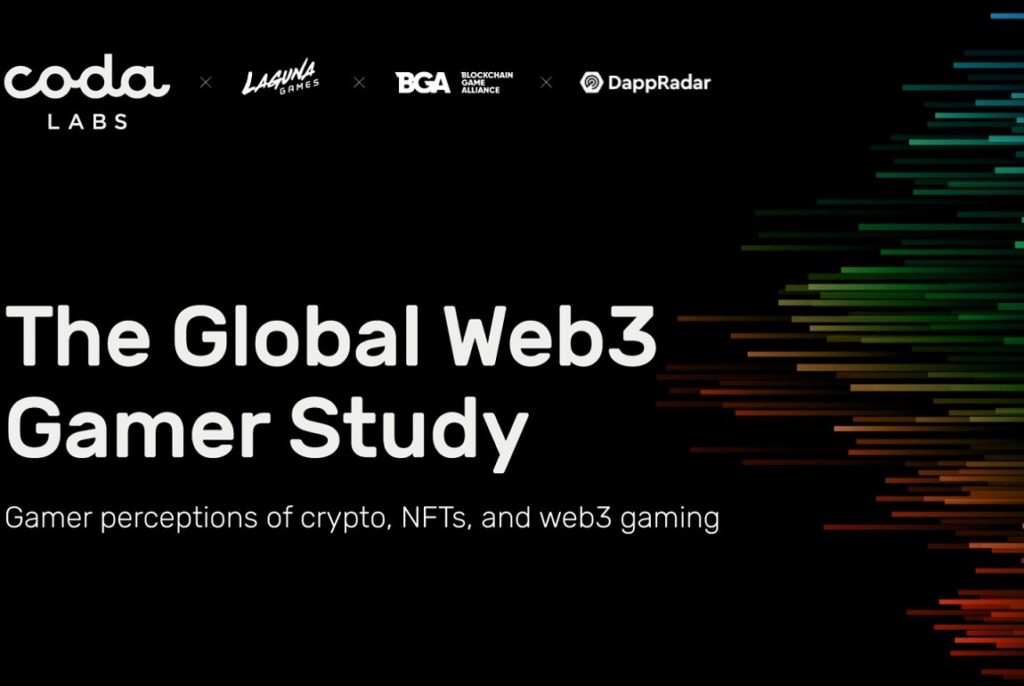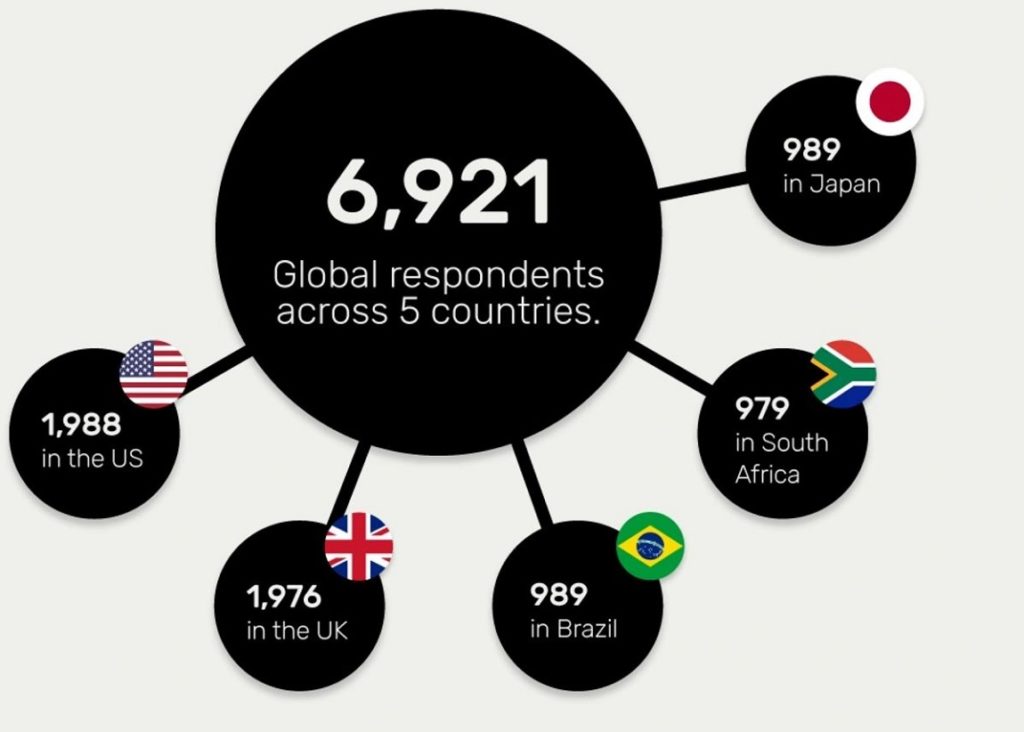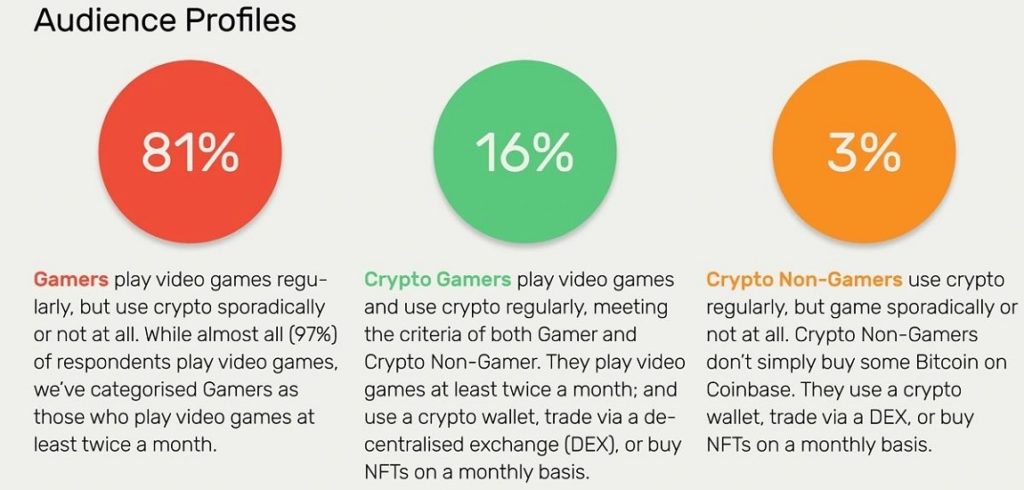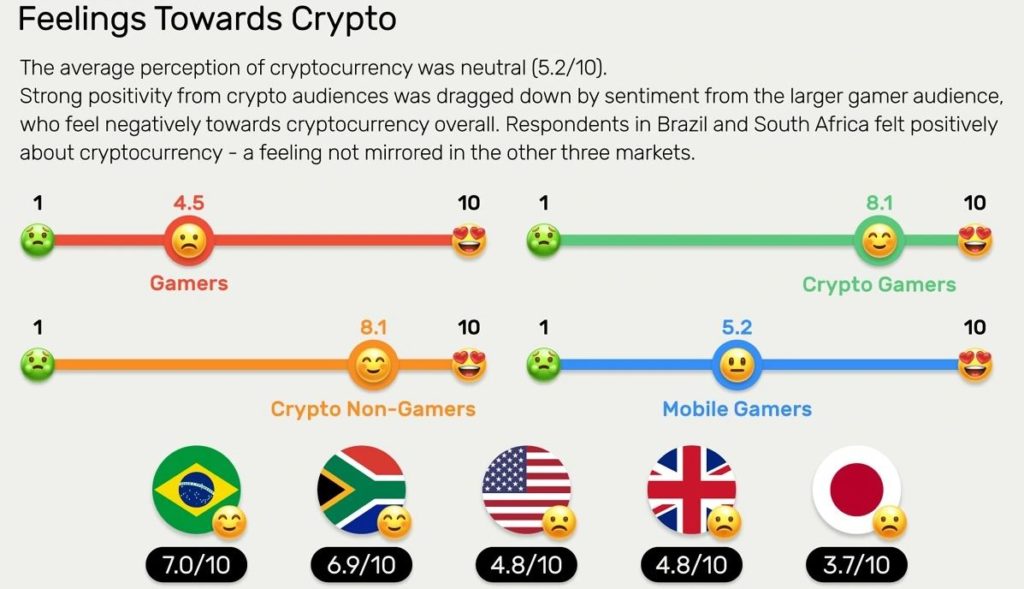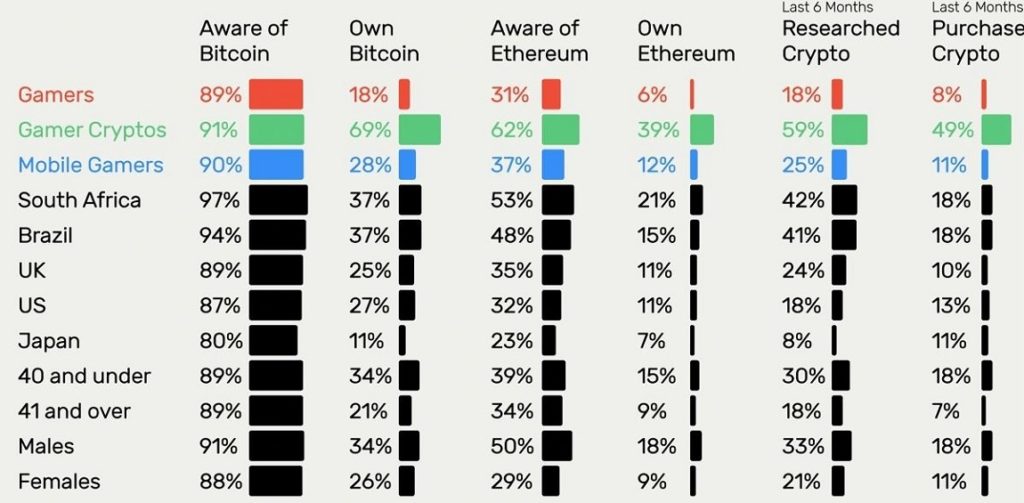Coda Labs published global survey, which showed that crypto games still have a long way to go before gaining mainstream acceptance. According to the report, the problem lies in marketing, but the vast majority of gamers are not interested in play-to-earn games, and those who have tried them still liked them.
Coda Labs was founded in 2019 by Can Gökalp. According to the company, the total number of downloads of their games: 100 million and 15000 mobile game developers and 10 million players work in their ecosystem. Since the beginning of 2022, the company has switched to crypto games. Earlier this year, the company released its first crypto project. Infinite Arcade, which has grown to over 35 games in just seven months and has an SDK where daily traffic reaches half a million active users (DAUs).
approx. editorial: The reliability of information about the indicators looks very doubtful.
But Coda Labs worked on the survey Blockchain Game Alliance, DappRadar и Laguna Gamesto find out what consumer gamers around the world across all gaming platforms (PC, consoles, mobile) think about cryptocurrencies, NFTs and blockchain gaming. WALR conducted an online survey with a total coverage of 6921 people in five global markets: USA, UK, Japan, Brazil and South Africa. In June, when there was a collapse of the crypt and a drop in the price of NFTs. Chainalysis reported that NFT prices fell 92% from May to July, while Bitcoin prices fell 58% this year. The number of users who actively trade or buy NFTs has dropped significantly.
В Coda Labs deliberately avoided countries where there are a lot of cryptogamers (Philippines, Indonesia). An interesting finding in the report is that emerging markets such as South Africa and Brazil are very enthusiastic about crypto, while in the US, UK and Japan, the attitude towards crypto is neutral or even negative.
The results
Gamers are aware of what is cryptocurrency and NFT. But they don't like them very much. 89% have heard of Bitcoin and 51% are aware of NFTs. But only 3% own NFTs. About 52% of gamers don't know any Web3 game terms. 28% of gamers have heard of P2E games. And the term Play-to-Earn itself is the most famous of all associated with crypto games.
It is noteworthy that GameFi was not included in the report, while in Southeast Asia the most popular term is GameFi due to projects associated with Binance and BSC.
About 16% qualified as crypto gamers and only 12% of gamers surveyed actually tried crypto games. 41% of gamers don't understand how they work. Quite a few players are distrustful of crypto games. About 41% of crypto gamers are concerned about fraud, and 32% of crypto gamers are concerned about the financial costs of playing games.
About 37% of gamers play crypto games to earn money. About 45% do not play crypto games at all. The main motivator is income. According to Jan Gekalp, this is a problem, because the real motivation should be the desire to play the game, to have fun. That is, crypto games do not particularly attract players just as games. Gamers rated them 8,1 out of 10. The overall opinion of all gamers surveyed was around 4,5 out of 10, or close to neutral. Crypto natives were rated at 8,1 out of 10. Mobile gamers were rated at 5,2 out of 10.
According to Margaret Wallace, players want to make a profit from the game, but at the same time do not want to feel like they are being robbed of money or resources, because it seems that the time the players spend on games is simply not valued.
Critical Step: Education
Can Gökalp believes that the next step should be education and this is the right step. You need to focus the attention of the players on the benefits, not on the problems or technology, technology should be in the background. NFT does not mean that the game is cheating you. Very different types of players are involved, some of them speak loudly, but this is not the voice of the majority. The need for literate education of crypto gamers is very important for the progress of past projects and the support of new ones, which will most likely have more literate users than their predecessors.
approx. editors: A good term for crypto games could be “open economy”. Open economy games will not directly evoke negative associations with crypto or NFTs, and this part could be hidden from normies.
Subscribe to our telegram channel and go to our main chat to discuss the latest news.

